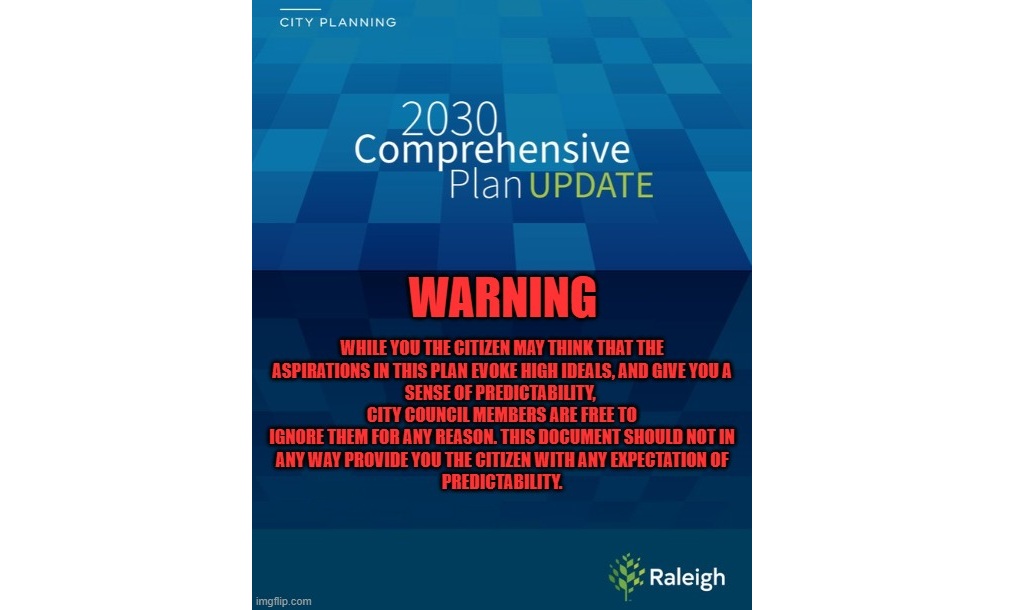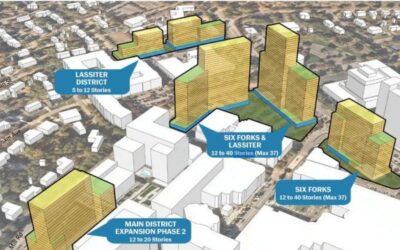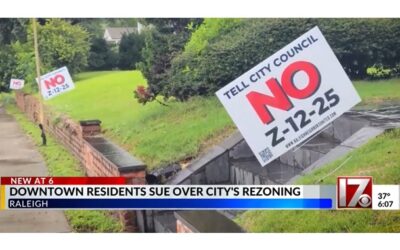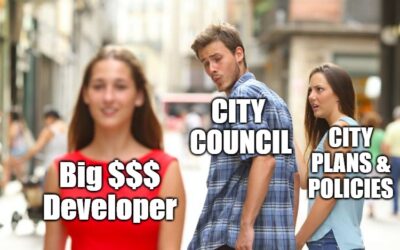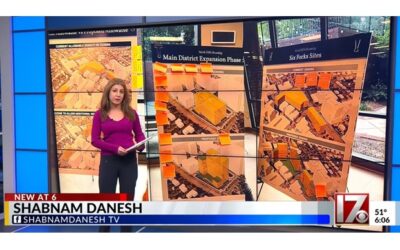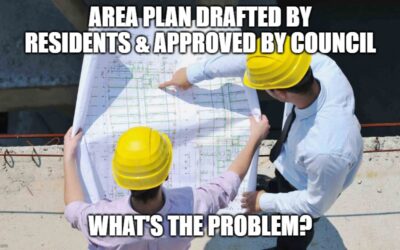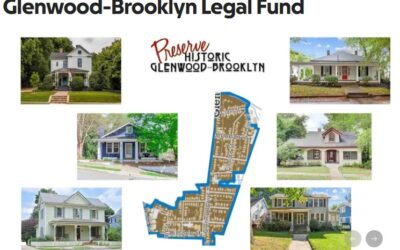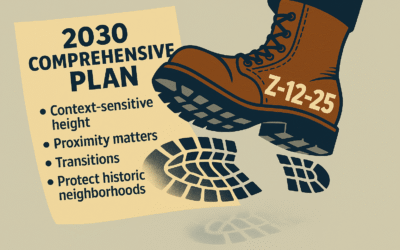Poll results show that Raleigh is failing miserably in community engagement. Allotting an extra four minutes per side at the public hearing was insignificant compared to the potential impact of the proposal. Discussing Six Forks Road traffic issues on January 29, more than a week after the proposed January 20 vote on the rezoning proposal, is a real slap in the face to Raleigh residents. What good does it do to hold further discussion AFTER a decision has been made? The neighborhood meetings held by the developer did not meet the requirements of neighborhood meetings as outlined on the City’s website. An Open House style meeting does not allow the public to consider all input from all attendees. This case is just the most recent example of shutting the people out of the process in favor of developer/donor interests.
Warning! Why bother having a Comprehensive Plan to simply ignore it?
Ignoring the current Small Area Plan should not be an option under any circumstances. It’s very easy to say as some councilors have that it’s just a guide and has no real meaning. If you really believe that then why bother having a Comprehensive Plan?
Where is Height Transition to Neighborhoods?
The applicant is requesting height everywhere that is inconsistent with the zoning recommendation of the Midtown area plan, which recommends heights between 4 and 20 stories, inconsistent with the Future Land Use Map, which recommends heights between 2 and 20 stories, and inconsistent with Table LU-2, which recommends height for Regional Mixed Use at a maximum of 20 stories. So, how can the staff review determine that this application is consistent with the Future Land Use Map, the Urban Form Map, and the Zoning map of the Midtown area plan, when it clearly is not?
CBS 17 Covers Lawsuit Against City of Raleigh
As the downtown Raleigh skyline continues to grow upward to meet housing demand, a group of downtown neighbors is asking a judge to step in, arguing the city ignored its own rules and residents’ concerns when they approved a controversial rezoning in Glenwood South in October.
City Policy is Clear on Appropriate Heights for North Hills
The core issues with this rezoning remain excessive height and insufficient conditions. This request seeks more than double the recommended height for these properties without providing the significant public benefits required by the Comprehensive Plan.
Development without Infrastructure Planning
This is not the first time that this case is being presented. The only thing that has changed is the composition of the Council and Mayor. You are again being asked to judge the elements of the application with the same guidance that was in place when this case was previously presented five years ago. The same inconsistencies exist now that existed then. It is not a complicated case unless you choose to create guidelines beyond those already clearly defined in the Midtown – Saint Albans area plan and 2030 Comprehensive plan.
Residents say input and infrastructure falling behind at North Hills
On January 6, 2026, rezoning case Z-34-25, the rezoning of North Hills, will again be presented to Council for approval. The previous submission in 2021 was withdrawn due to concerns from City Councilors and considerable public comment that did not support the request without further addressing the inconsistencies with the 2030 Comprehensive Plan for building heights, density transitions, and affordable housing. CBS 17 spoke with Larry Helfant about the case and the lack of attention paid to both community input and local infrastructure that is falling behind.
Council must uphold plans they unanimously approved
An Area Plan drafted by residents and approved by Council. This Mayor and Council need to be reminded that they unanimously supported the Midtown – Saint Albans Area Plan in December 2020 and have a contractual obligation with the public to support adherence to that policy!
Glenwood-Brooklyn Group Establishes Legal Fund
The Glenwood-Brooklyn Legal Fund has been established and opened a GoFundMe account to support professional and legal efforts related to land-use, zoning, and community-impact issues affecting the Glenwood-Brooklyn neighborhood.
This Fund operates independently from the plaintiffs and from legal counsel. Please donate what you can now.
Z-12-25 and the Decision-Making Process
At the October 7, 2025 public hearing at 7 PM there were a few comments made during the hearing on rezoning request Z-12-2025 to which I would like to respond, in addition to general comments on the overall procedure of the public hearing process.


